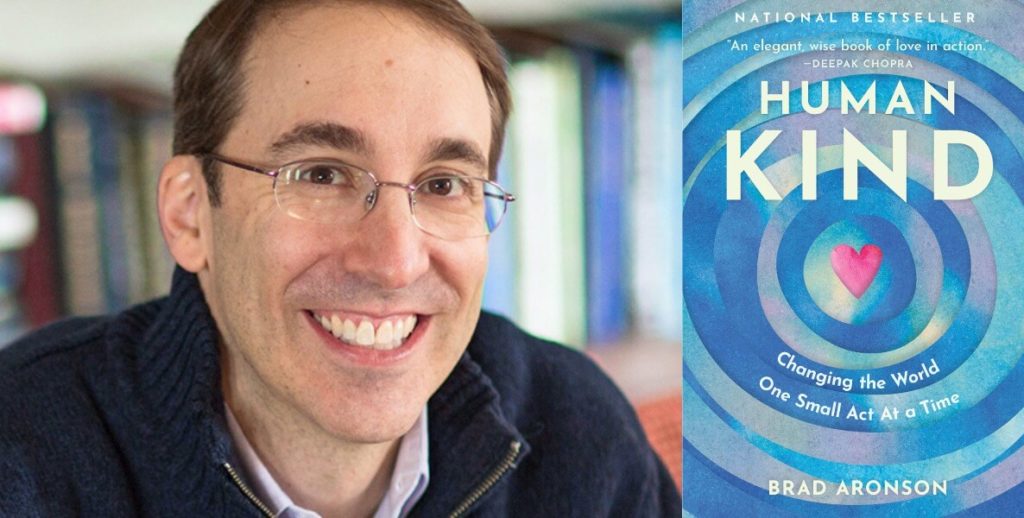[Editor’s note: Dr. Karen Reivich, who was scheduled to appear at this event, is now unable to attend. Dr. Vera Ludwig, a Penn neuroscientist, will appear instead.]
When entrepreneur/mentor Brad Aronson’s wife was diagnosed with cancer a few years ago, everything seemed overwhelming: caring for Mia during grueling medical treatments, running their household, caring for their young son, keeping it all together.
But one thing made it all bearable: kindness from family, friends and even those Aronson barely knew. His brother and sister-in-law sent a care package with everything they’d learned people undergoing cancer treatments needed. One cousin brought over a bowl of candy to give to the nurses; another offered to take his son on weekends. A friend brought lunch and a craft every week. Neighbors signed his son up for little league; a colleague offered to take over his nonprofit board duties.
The list in Aronson’s book, HumanKind, goes on, with one thing standing out: All those people rallied around without being asked. They just did it.
Inspired by the kindness he experienced, Aronson spent the months of Mia’s treatment writing the anecdotes that became HumanKind, a compendium of stories about small acts of generosity that have huge ripple effects. As he says early in the book, a Wall Street Journal bestseller:
The heroes in HumanKind don’t command an army of helpers or have an abundance of free time. They’re everyday people who focus on what they can do to make a difference. Their acts of kindness change lives and even save them. These everyday heroes don’t just hope the world will get better—they make it better.
An early tech pioneer, Aronson’s iFrontier was sold to Microsoft, and since leaving the company a few years later, he has gone on to invest in other startups while spending most of his time living the life he writes about in his book. A mentor since his middle school days, he served on the board of, and was a big brother at, Big Brothers Big Sisters, and is board president of Hopeworks, the Camden tech training and mentoring program for which he also teaches an entrepreneurship class.
He does all this because it is the right thing to do—and also, because “I realized at some point that it made me happier.”
As it turns out, Aronson’s experience is actually borne out by science. Kindness increases our oxytocin, which scientists associate with empathy and trust, and serotonin, a key mood stabilizer. It increases our lifespans, and our energy levels. It literally makes us healthier, and happier—while at the same time helping others to be healthier and happier.
Join The Citizen on Wednesday, April 28th at 6pm for a Zoom conversation with Aronson and Dr. Vera Ludwig, a Penn neuroscientist and researcher, to talk about how being kind to others is also a key to being kind to ourselves—and for ideas about where to begin being kind, right here in Philadelphia.
Wednesday, April 28, at 6pm via Zoom. Register for this free event here.

